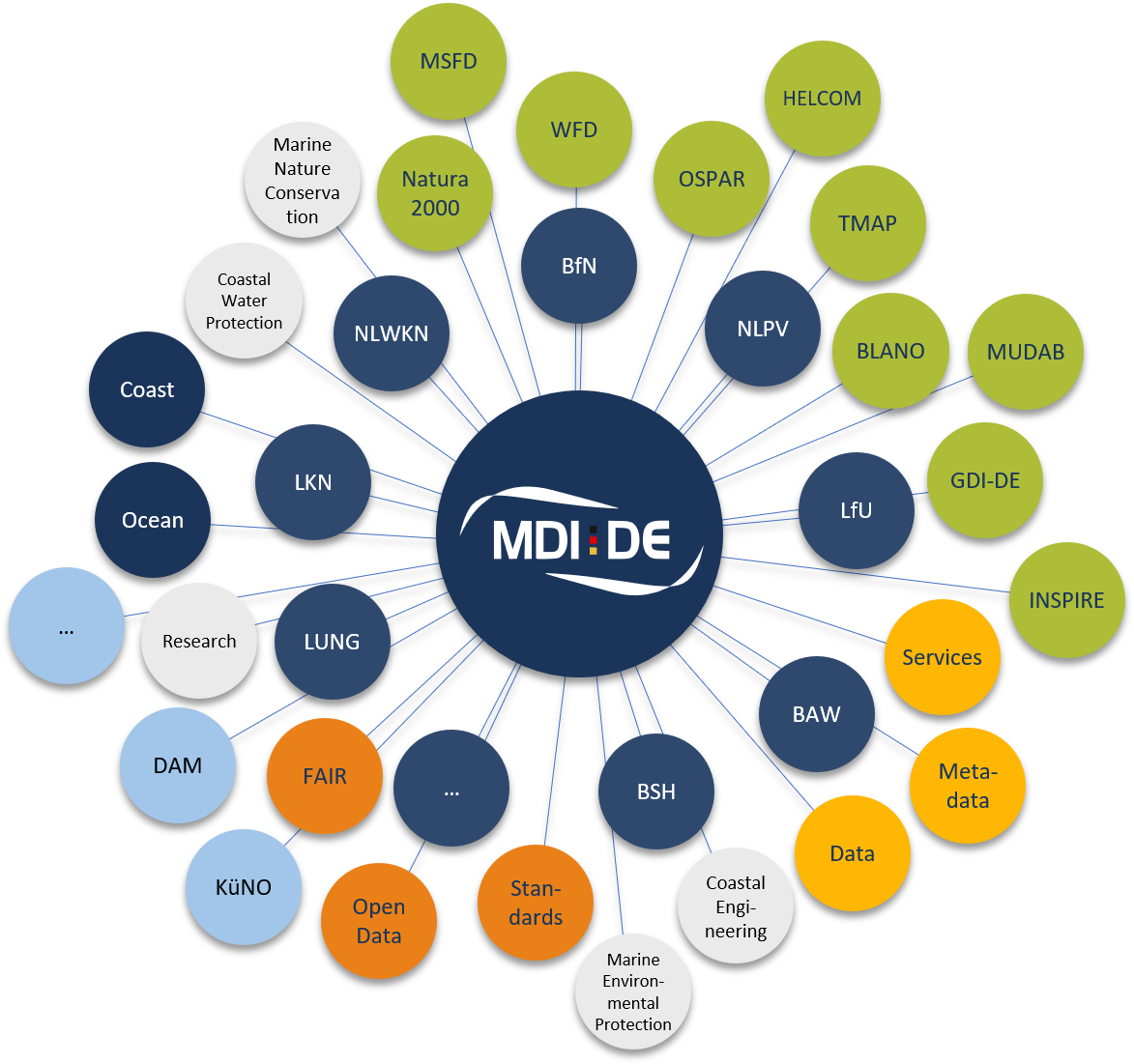Network
The MDI-DE network consists first of all of the technical networking as a data infrastructure whose central platform is the MDI-DE geoportal. Metadata, data and services for the German coastal and marine region of the participating authorities are searchable there. The cooperation of the MDI-DE partners in terms of content also results in joint services that can be found on higher-level portals such as GDI-DE or INSPIRE. This technical networking is achieved by using national and international standards. In addition, principles such as OpenData and FAIR (Findable, Accessible, Interoperable, Reusable) are implemented.
In terms of content, the different subject areas of marine nature conservation, marine environmental protection, coastal water protection, coastal engineering and research are covered.
In BLANO (Bund/Länder-Arbeitsgemeinschaft Nord- und Ostsee), the management of the German parts of the North Sea and the Baltic Sea is coordinated within a national and international framework. This includes the implementation of the Marine Strategy Framework Directive (MSFD), the Water Framework Directive (WFD) for transitional and coastal waters, as well as matters of the regional marine protection agreements (OSPAR, HELCOM). In addition, other EU directives relevant to marine protection such as the Habitats Directive (HD) and the Natura-2000-Birds Directive (BD) are included. In cooperation with BLANO working groups, MDI-DE elaborates topics, provides applications, harmonizes data and services.

The MDI-DE itself was developed in 2010 – 2013 in a KFKI research project funded by the BMBF. The importance of data management in the research sector has undergone a transformation in recent years, with greater emphasis on FAIR principles and OPEN Access. The establishment of a National Research Data Infrastructure (NFDI) and the German Alliance for Marine Research (DAM) initiative are of great importance. MDI-DE was actively involved in earlier KüNO projects (Coastal Research North Sea and Baltic Sea). The metadata catalogs refer to each other.